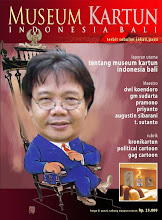How to prepare a Roast that will be a hit.
Here are some thoughts to ensure success when you're in charge of a roast:
1. Be sure that the guest of honor wants a roast. Don't make it a surprise! Talk to the honoree and ensure that he or she is as excited about the idea of a roast as you are.
The guest of honor needs to know in advance because he or she plays just as big a role as the roasters do.
2. Select a Roastmaster who can be consistently funny in good taste. The Roastmaster is the MC of the event who makes all the introductions.
3. The Roastmaster should coordinate the entire program. Talk to each presenter and, ideally, review their roast script. The Roastmaster can help the roasters to sharpen their lines. If you are the Roastmaster, you are also interested in eliminating duplicate jokes from one roaster to the next. Also, emphasize to the roasters that less is more. Usually two minutes of remarks have more impact than a five minute script. Never give the roasters a time allotment to fill. You want each roaster to speak only as long as they are good. If that happens to be only 60 seconds...great.
4. The Roastmaster needs to work with the guest of honor and provide help, as needed, in writing the counter-roast at the end of the roast. That is the part where the guest of honor gets his or her turn at the microphone. It is important that the guest of honor looks good and is funny. The guest of honor should have at least one roast line to throw back at each roaster AND at the Roastmaster. The Roastmaster's help with this "icing-on-the-cake" part of the program is critical. Never leave the guest of honor alone to write the counter-roast script, unless he or she is a talented humorous speaker or doesn't want help.
5. When opening the roast, remember that some members of the audience will be uncomfortable with the idea of poking fun at people. Remind them that roasts are held only for "people we like" and that it's truly an honor to be the roastee. Begin the roast with humor to warm up the audience. As the Roastmaster, poking fun at yourself at the beginning is very important.
6. As the Roastmaster, be prepared to throw a roast-like line at each roaster as you introduce them for their part of the program. You are using a stepping stone approach to ensure the acceptance of the roast lines pointed at the guest of honor. Poking fun at yourself as the Roastmaster gives you permission, in a sense, to poke fun at the roasters. And since they had a laugh line made at their expense, it gives them permission to roast the guest of honor. There's a bit of psychology involved in this structure.
7. The guest of honor then has a substantial part of the program, the counter-roast. The guest of honor has "the last word" you might say. As the Roastmaster, never try to top the counter-roast. Close the program with some brief, serious, testimonial remarks about how wonderful the guest of honor really is.
8. Follow these seven items and you'll likely have a roast that will be remembered for a long time.
Copyright 2006 by John Kinde
"Copyright by John Kinde, who is a humor specialist in the training and speaking business for over 30 years specializing in teambuilding, customer service and stress management. Free Special Reports: Show Me The Funny -- Tips for Adding Humor to Your Presentations and When They Don't Laugh -- What To Do When the Laughter Doesn't Come. Humor Power Tips newsletter, articles and blog are available at www.humorpower.com."
Darminto Digital Abstract Works
-
Balinese Barong by Darminto M Sudarmo
Three Princess Abstraction by Darminto M Sudarmo
See more result *Art Painting World*
*Darminto Fine Art Gallery *
11 years ago



































0 comments:
Post a Comment